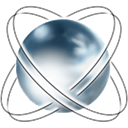Top Dynebolic Alternatives for Media Activists and Creatives
Dynebolic is a fascinating free software operating system designed specifically for media activists, artists, and creatives. It serves as a practical tool for multimedia production, offering capabilities to manipulate and broadcast sound and video, with tools for recording, editing, encoding, and streaming. Dynebolic stands out for its automatic recognition of most devices and peripherals, all while exclusively using free software. However, even the most specialized tools can benefit from exploration of alternatives. If you're seeking a Dynebolic alternative that offers different features, a broader community, or perhaps a more generalized approach to a free operating system, you're in the right place.
Best Dynebolic Alternatives
Whether you're looking for a more generalized Linux distribution, an alternative OS focused on stability, or something with a different philosophical approach, these options offer compelling reasons to consider them as a Dynebolic alternative.

Debian
Debian is a powerful and widely respected free and open-source operating system, making it an excellent Dynebolic alternative. It's known for its incredible stability, robust package management, and vast repository of software. Available across Free, Open Source, Windows, Linux, Windows S, BSD, and Self-Hosted platforms, Debian offers a highly customizable and flexible environment for any creative or activist, with features like rolling release options, low memory usage, and strong security & privacy.

Linux Mint
Linux Mint is one of the most popular desktop Linux distributions, appealing to millions. As a free and open-source Linux-based OS, it aims to provide a modern, elegant, and comfortable user experience, making it a strong Dynebolic alternative for those seeking user-friendliness. It's customizable, offers a Windows-like interface, is ad-free, and comes with many features out of the box, including a built-in file manager, excellent community support, and robust privacy features.

Arch Linux
Arch Linux is an independently developed, free and open-source GNU/Linux distribution tailored for competent Linux users. It uses pacman, its homegrown package manager, and is highly customizable, lightweight, and minimalistic. For those who want complete control over their operating system and are comfortable with a more hands-on approach, Arch Linux serves as an excellent Dynebolic alternative, offering a rolling release model, the vast Arch User Repository, and comprehensive wiki documentation.

Windows 10
Windows 10, a commercial operating system by Microsoft, offers a familiar environment for many users and can be considered a Dynebolic alternative for those needing broader software compatibility or integration with the Microsoft ecosystem. Available on Windows platforms, it features an in-built GUI, OneDrive integration, robust operating system functionality, and tablet support. While not free software like Dynebolic, its widespread adoption ensures extensive hardware and software support.

Manjaro Linux
Manjaro is a user-friendly Linux distribution based on Arch Linux, offering a fantastic balance between cutting-edge features and ease of use. As a free and open-source Dynebolic alternative, Manjaro Linux provides a rolling release model, making it always up-to-date. It boasts strong community support, customizable desktop environments, lightweight performance, and excellent stability, along with out-of-the-box support for Nvidia drivers and a focus on security.

Fedora
The Fedora Project is an openly-developed, free and open-source Linux distribution sponsored by Red Hat, known for its focus on innovation and integrating the latest technologies. As a Dynebolic alternative, Fedora provides an in-built GUI, key remapping, and separated workspaces, making it a robust and flexible operating system. It's an excellent choice for users who want to stay on the bleeding edge of Linux development while maintaining a stable and user-friendly experience.

elementary OS
elementary OS is a free, fast, and aesthetically pleasing operating system based on Ubuntu, offering a polished user experience. Its macOS-like interface, focus on distraction-free UI, and Flatpak support make it a compelling Dynebolic alternative for those who prioritize design and simplicity. As a free and open-source Linux OS, it's also Debian package compatible and emphasizes FOSS principles, providing a coherent and intuitive environment for creative work.

macOS
macOS, a Unix-based operating system developed by Apple Inc., offers a premium and integrated experience, making it a strong Dynebolic alternative for users within the Apple ecosystem. As a free OS for Mac users, it features a Unix-like core, privacy-focused design, and powerful features like Spotlight and QuickLook File Preview. While not open-source, its robust multimedia capabilities and intuitive interface are highly valued by many creatives.

ReactOS
ReactOS is a free and open-source effort to develop an operating system compatible with applications and drivers written for Microsoft® Windows™ NT. This makes it a unique Dynebolic alternative for those who need to run Windows software in a free and open-source environment. It's a lightweight OS with a Windows-like interface, featuring a community-based development model, an NT kernel, and a package manager, all designed to offer Windows XP compatibility.

FreeBSD
FreeBSD is an advanced free and open-source operating system for a variety of architectures, including x86 and ARM. As a Dynebolic alternative, FreeBSD offers a robust and highly performant Unix-like environment, often favored by those with a more technical background. It features a strong focus on stability, a comprehensive package control system, and is widely used for servers and embedded systems, providing a solid foundation for demanding multimedia tasks.
Exploring these Dynebolic alternatives opens up a world of possibilities for media activists, artists, and creatives. Each operating system offers unique strengths, from deep customization to user-friendliness, and broad software compatibility. Consider your specific needs for multimedia production, community support, and your comfort level with different technical approaches to find the best fit for your workflow.